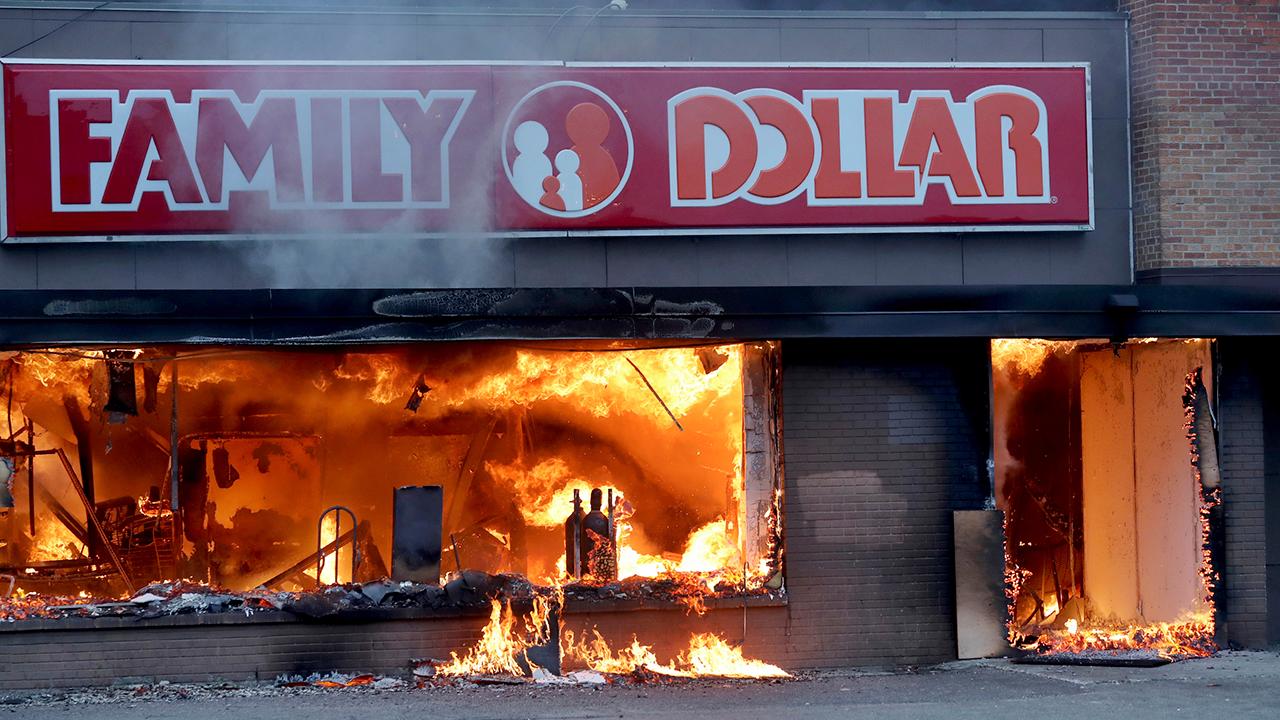Riots put brakes on US economy's coronavirus recovery
There's 'no situation where this is a good thing'
The civil unrest erupting across America following the death of George Floyd is likely to slow the U.S. economy’s comeback from the COVID-19 pandemic.
Violent protests and looting have left a trail of destruction from New York to Chicago to Los Angeles, stressing already frazzled business owners who now have to clean off graffiti, sweep up shattered glass and replace pilfered merchandise and furnishings.
“This is a net negative, both in the short term and in the long term,” Sri Kumar, president of the Santa Monica, California-based Sri-Kumar Global Strategies, told FOX Business.
JAMIE DIMON REACTS TO FLOYD PROTESTS: JPMORGAN COMMITTED TO 'FIGHTING RACISM'
The rioting will probably add “a couple of percentage points” to the sharp drop in gross domestic product that was caused by stay-at-home orders intended to slow the spread of the COVID-19 pandemic, he said.
The economic impact would have been “much more negative,” however, had the riots happened in isolation, Kumar added.
"The economic costs mounting is what in some respects may be the actual goal."
All of the major Wall Street banks are expecting U.S. GDP to plunge by more than 30 percent during the second quarter after governors across the country ordered the closure of nonessential businesses and directed residents to stay home unless travel was absolutely necessary.
The shutdowns, which began in the final weeks of March, caused the U.S. economy to shrink by 5 percentage points during the first three months of the year, according to an updated estimate released Thursday by the Commerce Department.
LOOTING OF NYC LUXURY STORES PART OF 'ORGANIZED' EFFORT: POLICE
Business owners who are afraid of being looted again – not over the next few months, but a year or two down the road – may not want to reopen as a result, Kumar said. Therefore, he believes the economy‘s reopening is going to become “much more careful and more delayed."
Reopenings had been going “reasonably well” until the violence, Neil Dutta, head of economics at the New York-based Renaissance Macro Research, told FOX Business. The looting has caused many stores to delay reopening and has forced companies like Target, Walmart and Nike to shutter hundreds of sites.
CHINA WIELDS CURRENCY AS WEAPON WITH TRUMP TENSIONS RISING
It’s too early to say whether the riots will cause a second wave of COVID-19 infections that slows down the pace of the economic recovery, Dutta explained, though he pointed out that most of the protestors were young people who “tend to do reasonably well with the virus.”
Stocks In This Article:
Additionally, the “horror stories” that were expected to follow the first reopenings – in places like Florida, Georgia and Texas – haven’t developed so far as people have for the most part been adhering to social-distancing guidelines and wearing masks.
CLICK HERE TO READ MORE ON FOX BUSINESS
While there's “no situation where this is a good thing,” the U.S. economy may actually see a boost due to the rebuilding that will occur following the riots, Dutta said.
“This is sort of your classic hurricane-style shock where you have a delay in activity and then things pick up and then there's a rebuilding process that actually boosts GDP,” Dutta said. “The destruction in wealth doesn't necessarily impact GDP, but the rebuilding does.”
Such efforts may benefit from the addition of “even more stimulus” from both the Federal Reserve and the Treasury, Kumar pointed out.
Treasury has already extended more than $2 trillion to support the economy through its stimulus payments to health care providers, businesses and struggling families. The Federal Reserve, for its part, has cut interest rates to near zero, pledged to buy unlimited assets and introduced a number of lending programs to ensure credit flows to the businesses and households that need it most.
“At the end of the day, the economic costs mounting is what in some respects may be the actual goal,” Dutta said. “That's what will effect the kind of political change that the protesters want to see.”




















